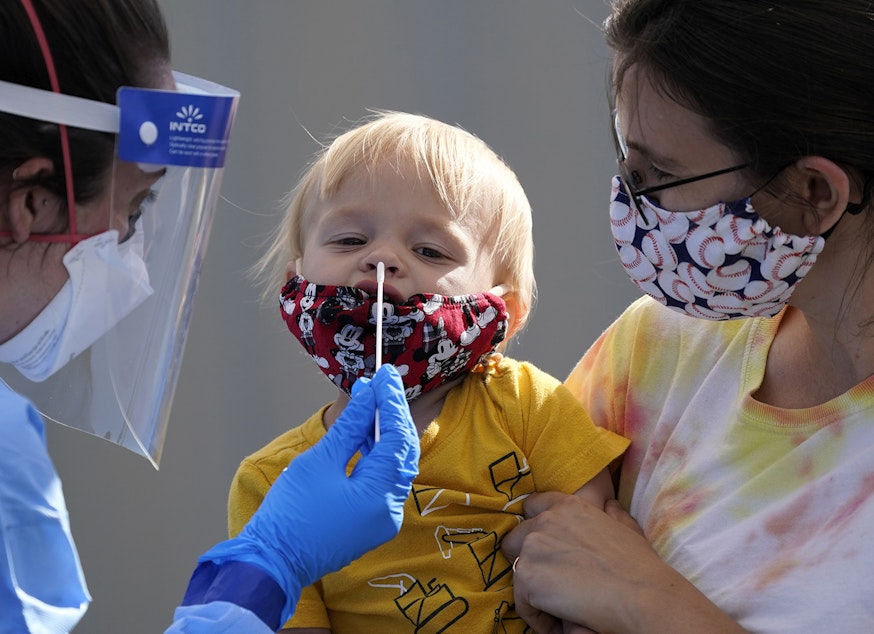One-third of Covid cases studied in Washington state are 'variants of concern'

About one-third of Covid-19 cases (35.9%) analyzed genetically in Washington state in recent months are "variants of concern."
Experts are concerned about these variants because they are either more contagious or less responsive to treatment or vaccines than other forms of the virus.
The new numbers from the Washington Department of Health cover virus samples whose DNA has been scanned to determine the variant type since Jan. 24.
Five variants of concern are floating around Washington state, including ones that have spread rapidly in California and the United Kingdom.
In February, scientists sequenced the genomes of nearly 10% of all confirmed cases of Covid-19 in Washington state, more than in most states, according to the Department of Health.
Still, state officials warned that the DNA samples are not representative of all Covid-19 cases in the state.
“It tends to be biased toward Puget Sound region,” spokesperson Teresa McCallion said.
The state’s two largest virology labs doing this work, at the University of Washington and the Fred Hutch Cancer Research Center, are both in Seattle.
McCallion said other Washington labs have only recently started sequencing Covid-19 DNA.
“They’re spread out across the state, to have better eyes on the variants,” she said.
Washington state’s most commonly found variant, actually a closely related pair known as B.1.427/B.1.429, has already become dominant in California and is responsible for 31% of recent Covid cases in Oregon, according to the Centers for Disease Control and Prevention.
It is estimated to be 20 percent more contagious than run-of-the-mill Covid.

Of the cases identified in the Washington Department of Health report, 28% were pegged as the "California variant" and 7% were found to be B.1.1.7, the "U.K. variant.”
Health officials say the tried-and-true measures of masks, distancing, and ventilation are still effective at preventing the variants from spreading.
Variants that have wreaked havoc in South Africa (“B.1.351”) and Brazil (“P.1”) are present but apparently uncommon in Washington. Each showed up in 0.5% of Covid samples whose DNA was sequenced.
Correction 8:30 p.m. 4/13/21: An earlier version did not indicate that the shares of different variants were specific to sequenced cases, which may not reflect statewide trends.




